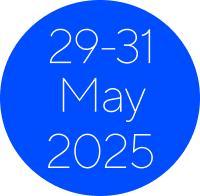Clinical seminar: Occupational health physiotherapy: promoting health at work, work injury prevention, and return to work (CS-04)
Chair: Gayline Jr Manalang (Philippines)
Speakers: Rose Boucaut (Australia), Claudia Patricia Rojas Silva (Colombia), Catherine Wambui Wambua (Kenya)
Learning objectives
- Recognize the scope of practice of physiotherapists working in occupational health and ergonomics – both at the individual (employee) and organisational (employer) levels – for workplace health promotion as well as injury prevention and management.
- Distinguish how contextual factors internationally may influence the prevention of work related injury and the return to work of occupationally disabled workers.
- Compare access to occupational health physiotherapy in different situations, for well and occupationally disabled workers, including the stakeholders’ responsibilities across the different levels of prevention, in light of the Sustainable Development Goals (#3:health and well being; #5: gender equity and female empowerment; and #8:decent work).
Session outline
Work related musculoskeletal conditions are prevalent in many countries, regardless of the state of occupational health services. Presenters will illustrate how occupational health physiotherapy (OHP) practice plays out in different regions of World Physiotherapy using case studies to demonstrate how work activities and environment may predispose workers to such conditions.
Starting with a brief overview of some important demographic and legislative similarities and differences, the focus will shift to examples from the manufacturing sector in Colombia and office settings in Africa. Video recordings and photos of workplaces and work design issues will enable participants to see some challenging contemporary work conditions that may lead to Work Related Musculoskeletal Disorders (WRMSDs).
The cases will allow the identification and assessment of contributing risk factors for WRMSDs, highlighting health and safety interventions at both individual and organisational levels. Presenters will demonstrate their clinical reasoning process, using theoretical models typically used by OHP practitioners, and they will share their approaches taken to promote health, reduce risk, and manage injury.
This seminar will be supported by recent evidence about injury prevention and work injury management and the health benefits of work, aligned to achieve UN Sustainable Development Goals (SDGs) towards good health and well-being (SDG 3), gender equality and empowerment of all women (SDG 5), and decent work towards economic growth (SDG 8). The advanced skills required by physiotherapists working in this field and their scope of practice in countries with different practice settings will be highlighted together with a brief statement about opportunities for education of students and graduates in the OHP field. The audience will see how the spectrum from work injury prevention to work injury management plays out, together with contextual factors that influence access to physiotherapy care, and the scope of physiotherapists practice in this specialty.
Session delivered by: International Federation of Physiotherapists working in Occupational Health and Ergonomics
References
Abrams N. (2016). “Workplace Safety,” in A. Wagenfeld (ed.), Foundations of Therapy and Practice for the Occupational Therapy Assistant
American Occupational Health Conference (2022). Global Ergonomics: Successful and Sustainable Strategies for the Post-Pandemic World. Salt Lake City, May 2022
Black C (2008). Working for a healthier tomorrow. Independent Report, Department for Work and Pensions. UK, March. ISBN 978 0 11 702513 4 Available at: https://assets.publishing.service.gov.uk/media/5a7c55bee5274a1b0042313c/hwwb- workingfor-a-healthier-tomorrow.pdf (accessed 1 November 2023)
Black C, Shanmugam SS and Gray H (2023). Consensus on occupational health competencies for UK first contact physiotherapists. Physiotherapy 121: 58–68. DOI: 10.1016/j.physio.2023.07.004
Briceño-Ayala, Leonardo (2022). Medicina preventiva, ocupacional y ambiental. Editorial El Manual Moderno, 2022.Capitulo: Fundamentación del fisioterapeuta rosarista en el área de salud y trabajo.
Decreto1072 de 2015. Decreto Unico Reglamentario Trabajo. Ministerio del Trabajo. https://www.funcionpublica.gov.co/eva/gestornormativo/norma.php?i=72173
Dimberg L, Goldoni Laestadius J, Ross S, and Dimberg I (2015). “The Changing Face of Office Ergonomics,” The Ergonomics Open Journal, 8, 38–56
García-Sánchez, Lilia Virginia, ed (2017). Educación en fisioterapia: diálogos académicos en la Universidad del Rosario, 1996-2016. Editorial Universidad del Rosario. Capítulo: Fundamentación del área de salud y trabajo.
Loisel P and Anema J R (2013). Handbook of work disability: Prevention and management. New York, NY Springer
Perfil profesional y competencias del Fisioterapeuta en Colombia. Ministerio de Salud y Protección Social. (2015). Avaiable https://www.minsalud.gov.co/sites/rid/Lists/BibliotecaDigital/RIDE/VS/TH/Perfil-profesional-competencias-Fisioterapeuta-Colombia.pdf
Resolución Número 3050 De 2022 (julio 28) por la cual se adopta el Manual de Procedimientos del Programa de Rehabilitación Integral para la reincorporación laboral y ocupacional en el Sistema General de Riesgos Laborales. Ministerio de trabajo Colombia.
Safe Work Australia (2019). The national return to work strategy 2020 – 2030. Corporate Publication document. Available at: https://www.safeworkaustralia.gov.au/system/files/documents/1909/national_return_to_ work_strategy_2020-2030.pdf (accessed 31 October 2023)
United Nations (2015). Sustainable Development Goals. Available at: https://sdgs.un.org/goals
View all clinical seminars
See the 11 clinical seminars to be presented at congress.
View all speakers
Find out who the key speakers at congress will be.
Registration
View the registration fees and register for congress.




